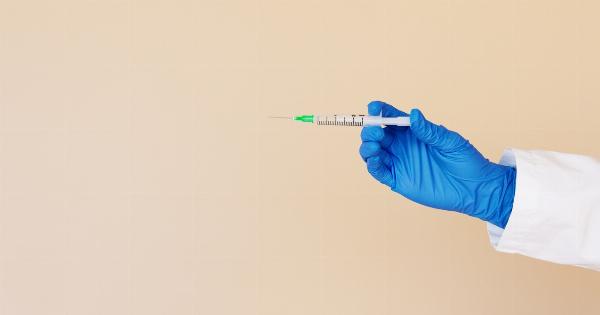When you’re trying to conceive, it’s important to pay attention to your nutrition and ensure you’re getting all the vital nutrients your body needs.
A well-balanced diet that includes a variety of nutrients can play a crucial role in promoting fertility and increasing your chances of getting pregnant. Here are four key nutrients that you should prioritize if you’re trying to conceive:.
1. Folic Acid
Folic acid, also known as folate, is a B vitamin that is essential for women who are trying to conceive or are already pregnant.
It plays a critical role in the early development of the baby’s neural tube, which eventually forms the brain and spinal cord. Adequate folic acid consumption before conception and during early pregnancy can help reduce the risk of neural tube defects like spina bifida.
Food sources: Leafy green vegetables, legumes, citrus fruits, fortified grains, and supplements.
2. Iron
Iron is an important mineral that helps in the production of hemoglobin, a protein in red blood cells that carries oxygen to all parts of your body.
Maintaining proper iron levels is crucial for women who are trying to conceive, as it supports healthy ovulation and ensures that the growing fetus receives sufficient oxygen and nutrients. Iron deficiency can increase the risk of miscarriage and preterm birth.
Food sources: Red meat, poultry, fish, beans, spinach, and fortified cereals.
3. Omega-3 Fatty Acids
Omega-3 fatty acids, particularly docosahexaenoic acid (DHA) and eicosapentaenoic acid (EPA), are essential for reproductive health and fertility.
They help regulate hormone levels, reduce inflammation in the body, and improve blood flow to the reproductive organs. Omega-3 fatty acids also play a crucial role in the development of the baby’s brain and eyes during pregnancy.
Food sources: Fatty fish (salmon, sardines), walnuts, chia seeds, flaxseeds, and fish oil supplements.
4. Zinc
Zinc is a mineral that plays a vital role in fertility and reproductive health for both men and women. It is necessary for the production of genetic material (DNA and RNA), which is critical for the development and maturation of eggs and sperm.
Zinc deficiency can lead to hormonal imbalances, reduced egg quality, and impaired sperm production.
Food sources: Oysters, beef, poultry, dairy products, beans, nuts, and whole grains.
While these four nutrients are crucial for fertility and conception, it’s important to remember that maintaining an overall balanced diet is equally essential.
Eating a variety of nutrient-rich foods, staying hydrated, and avoiding excessive caffeine and alcohol consumption can all positively impact your fertility journey. Additionally, consult with a healthcare professional or a registered dietitian for personalized dietary recommendations tailored to your specific needs.



























